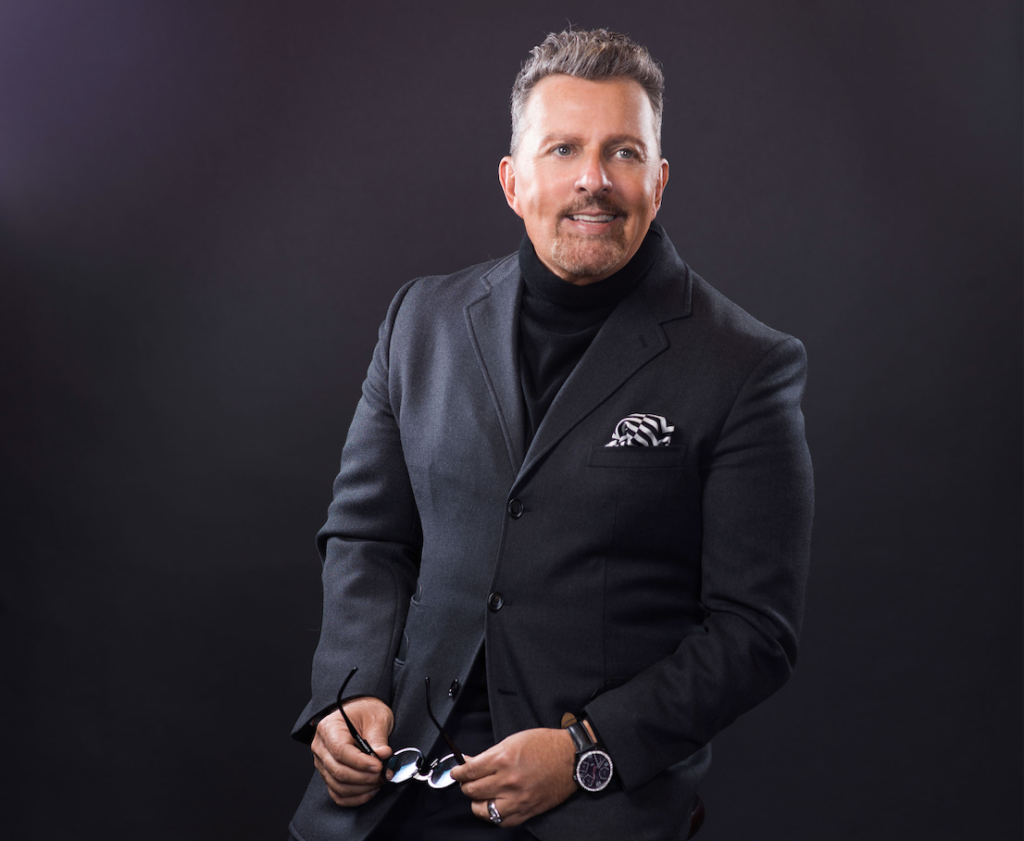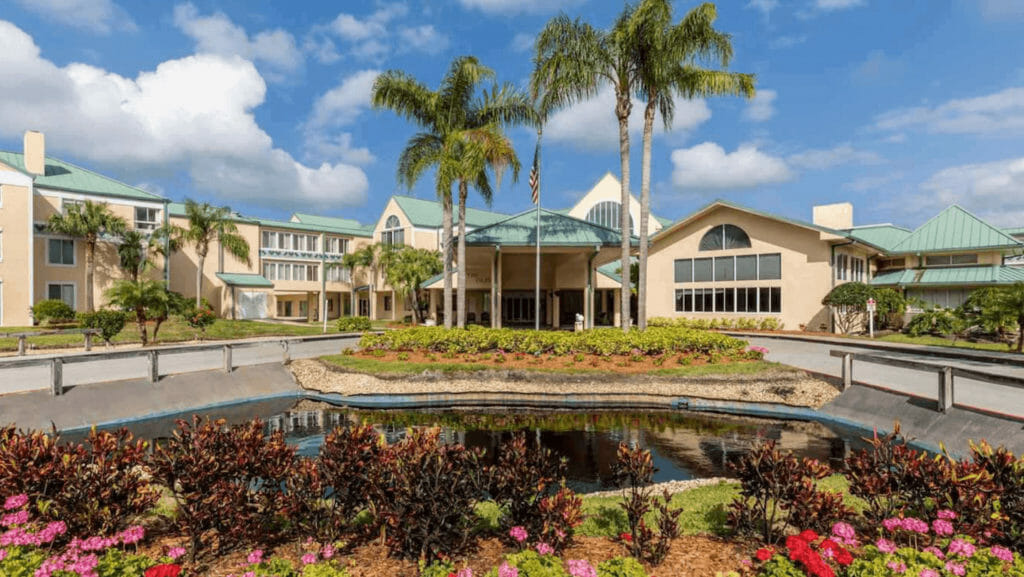
Dwayne Clark founded Aegis Living in 1997 after a career including positions at Sunrise Senior Living and Leisure Care. The company’s first community opened in 1998, and today, the Bellevue, WA-based assisted living and memory care provider has 32 communities in three states, with projects underway that will see its reach grow even bigger. Before the COVID-19 outbreak began in the United States, the CEO shared details of the company’s future plans related to health and wellness with McKnight’s Senior Living. This is the second part of our interview; see part one, about strategic growth, here.
Aegis Living has announced that it plans to make personalized medicine a cornerstone of future offerings. Can you talk more about that?
I could spend five hours talking to you about the initiative, because I’m engulfed in it. I spend one to two hours a day studying it.
It comes from a variety of perspectives. I spent the last five and a half years doing research and study and going to meetings and conferences, and even putting myself in my own kind of personalized health experiments, to create a book that came out this fall called “30 Summers More: Adding Time Back to Your Aging Clock.” It has become a bestseller on Amazon. And what I discovered during this journey was, there are so many things that we can do to improve the lives of our residents.
Right now we take blood pressure, we take people’s temperatures, we look at them and see if they’ve changed condition. There’s so many other things that we can do.
Traditional Chinese medicine, or TCM, has been around for 5,000 years, but no one in senior housing has really taught people about changing conditions via TCM. You can talk about whether skin tones are different or how to detect a pulse. And the thing about TCM that’s so brilliant is, it’s preventative. It’s not after-the-fact. You don’t want to wait until someone doubles up in pain to say, ‘Oh, they have a UTI.’ You want to be able to look and say, ‘Wow, if we don’t give this person more hydration, they’re going to end up with a UTI.’ We’re trying to think progressively about a variety of things.
I’m consumed by this concept called earthing or grounding, where we connect with the Earth. In Japan, they call it forest bathing. Doctors actually write prescriptions for people to lower their blood pressure, lower their blood sugar, through walks in the forest.
There’s the concept of biophilia, which hospitals have found significant in terms of improving people’s immune systems. They originally discovered this by putting people, post-op, in rooms that overlook brick walls and other people in rooms that overlook gardens. And they found that the people whose rooms overlooked the gardens were healing twice as fast as the people whose rooms overlooked the brick wall.
We don’t do enough in senior housing to get people connected back to nature. We put people in rooms, and they play bingo and they go to birthday parties, but they’re in the confines of an artificial environment. What we’re trying to do is think, ‘What can we do to get people back in nature? What can we do to get people connected to the Earth? What can we do to improve people’s immune systems?’ We think that’s a real big idea. It’s more than taking people for a walk. It’s a regimented program that we think will improve people’s health. There are so many facets in terms of senior housing.
One of the things that I didn’t write in this book was, I interviewed President Clinton, I spent time with Jimmy Carter, and I got to meet Barack Obama. One of the things that I found with presidents is, they were living 15, 20, 25 years longer than their mortality chart would have predicted at the time of their birth. President Clinton was 72 when I met with him, and no one in his family has ever lived to the age of 72; everybody dies some form of cancer. And he said, ‘You know, there’s only one reason for it. It’s purpose in my life.’ And Jimmy Carter, at 95, is still building Habitat for Humanity houses and teaching Sunday school, and he has a foundation that does great work around the world. His dad, brother and sister all died of pancreatic cancer in their 50s, and here he is, 95. How do you explain it?
The one thing we don’t do well is give people purpose as they age. People think, ‘Well, my purpose is, I retire at 65 and I go golfing and fishing.’ That’s what kills people. Purpose is a big aspect of wellness, and if we really want to be forward-thinking, we’d better be thinking more about wellness for our residents.
How would those things come to be realized in the communities of Aegis beyond programming? Would there be, say, design elements?
Absolutely. This is a holistic thing. I just had a meeting about how we’re going to incorporate some of these wellness things into our buildings. Do we need to build bigger spas so we can have healing touch, so we can have Reiki, so we can have more profound touching treatments? Should we have biophilia walls in the buildings? Should we look at different design fo our gardening spaces and our exterior architecture in terms of landscaping? And so on.
But even things like sleep — there’s great technology for sleep. On my bed, I have a sleep map that can actually diagnose how much you toss and how deep your sleep is. I wear a ring called an Oura Ring that will track my deep sleep and tell me how many times a night I wake up. All these kinds of things, technology can assist with. And then you have data.
Let’s take sleep as an example. If you see a person who’s getting eight percent deep sleep — maybe they sleep eight hours and out of those eight hours are only getting 32 minutes of deep sleep — there’s going to be an impact on their immune system. You can trace it back and say, ‘Did you drink coffee at nine o’clock? At night, are you drinking caffeinated beverages? Were you watching your TV until you fell asleep?’ You can trace it backwards and say, ‘OK, how do we improve that?’ And then you can track it scientifically. You have these devices that can track it and then you can improve their sleep and, in the process, their immune system and their quality of life.
When will your health and wellness program get underway at the community level?
We’ve been on this track for about four or five months. It’s really come about as my book has become more and more popular. We have a building opening next January or February in Bellevue called Overlake, and that will be the first time that we’re piloting some of these new concepts, in that building. We’re going to pilot these things, and then it’s going to expand and expand and expand and expand.
We’re hiring a gerontologist and an M.D. and forming a wellness board that will be made up of some of the greatest thinkers in the country to actually help lift this program off the ground. We want scientific data behind this.
So many people do programs that are half thought-out. I went to a building a few months ago. I read their website — it’s a competitive building — and it said, ‘Oh, we have this great spa.’ So I thought, ‘Oh man, yeah, I really want to go see this.’ So I went in, and I said, ‘Where’s the spa?’ And they said, ‘This is it.’ They had a bathtub, a loofah and a battery-operated candle. They said people loved it. People are just trying to sell the sizzle. We don’t just want to sell sizzle. We want the data behind it. We want to say, ‘By doing these three things, their sleep improved, they haven’t been sick in 12 months, they have more energy, their memory is coming back’ — whatever the case may be.
Is personalized medicine and preventive health the future of senior living in general?
It’s the future of Aegis Living. I think we’re way ahead of the curve in how we’re thinking about this and the experts that we’re gathering together to give us some very creative thoughts about this topic.
If you think about it, no one grows up saying, ‘Man, I can’t wait to go into assisted living. It’s my dream in life.’ Right? But if you invent a company or a concept that says, ‘Hey, not only do I think I’m going to improve the quality of your life as you age, but I think I can extend your life expectancy through some very well-thought-out methodologies and science’ and so on, that’s significant. That’s really significant. We’re not at that point yet, but I think we have that capability.



